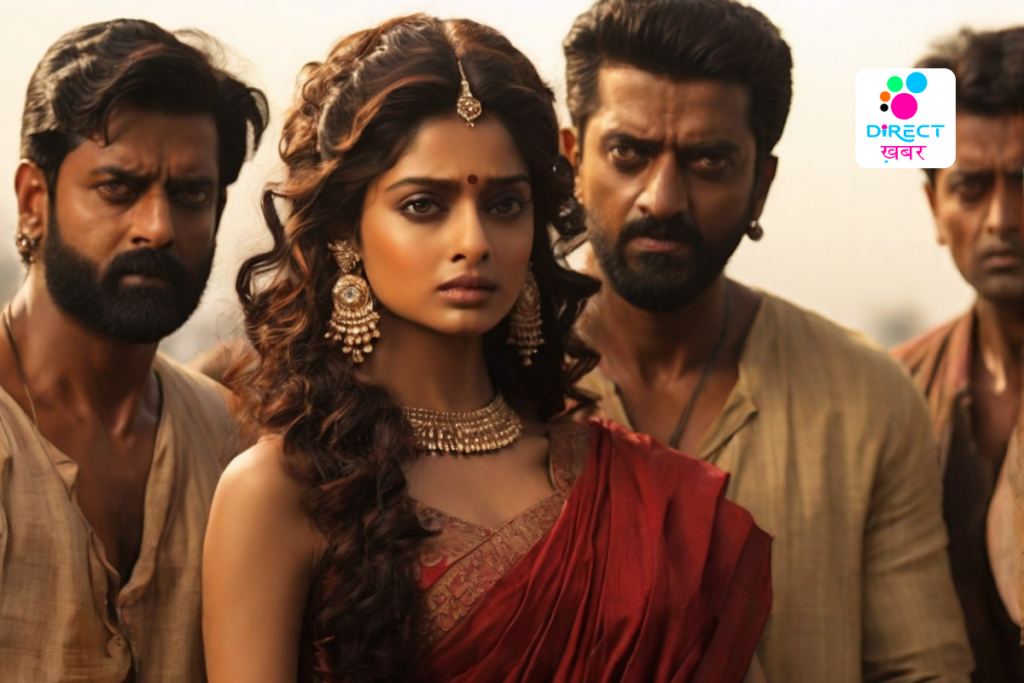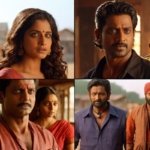Breaking Stereotypes: Bollywood’s Impact on Social Issues
Bollywood, the vibrant Indian film industry, has long been celebrated for its entertainment value, but its impact extends far beyond the realm of cinema. Through its portrayal of social issues, Bollywood has played a significant role in challenging stereotypes and shaping public perceptions. This essay explores how Bollywood movies have addressed various social issues, from gender inequality to caste discrimination, and how they have contributed to fostering dialogue and driving positive change in society.

1. Gender Equality:
Bollywood has been instrumental in challenging traditional gender roles and advocating for gender equality. Films like “Queen,” “Piku,” and “Dangal” have depicted strong female protagonists breaking societal norms and pursuing their dreams. These movies have not only entertained audiences but also inspired women to assert their independence and challenge patriarchal norms.
2. LGBTQ+ Representation:
In recent years, Bollywood has made strides in representing LGBTQ+ characters and storylines with sensitivity and nuance. Movies like “Aligarh,” “Ek Ladki Ko Dekha Toh Aisa Laga,” and “Shubh Mangal Zyada Saavdhan” have addressed LGBTQ+ issues, contributing to greater acceptance and understanding of diverse sexual orientations and gender identities.
3. Mental Health Awareness:
Bollywood has also shed light on mental health issues, breaking the stigma surrounding discussions about psychological well-being. Films such as “Dear Zindagi,” “Taare Zameen Par,” and “Barfi!” have sensitively portrayed characters dealing with mental health challenges, sparking conversations and encouraging empathy towards those struggling with such issues.

4. Caste Discrimination:
Addressing the deep-rooted issue of caste discrimination, Bollywood movies have depicted stories of resilience and social justice. Films like “Article 15,” “Masaan,” and “Sairat” have confronted caste-based oppression, urging audiences to confront the realities of casteism and work towards a more inclusive society.
5. Religious Harmony:
Bollywood has often celebrated the beauty of religious diversity and promoted communal harmony through its narratives. Movies like “PK,” “Bajrangi Bhaijaan,” and “My Name is Khan” have emphasized the importance of tolerance and understanding across religious lines, fostering a sense of unity and empathy among audiences.
6. Environmental Conservation:
Increasingly, Bollywood has turned its lens towards environmental issues, raising awareness about the urgent need for conservation and sustainability. Films such as “Pad Man,” “Swades,” and “Paani” have highlighted environmental challenges and inspired viewers to take action towards a greener future.

7. Disability Rights:
Through powerful storytelling, Bollywood has advocated for the rights and dignity of persons with disabilities, challenging stereotypes and promoting inclusivity. Movies like “Paa,” “Black,” and “Margarita with a Straw” have portrayed characters with disabilities in a respectful and empowering manner, promoting greater understanding and acceptance in society.
Bollywood’s influence on social issues is undeniable, as it continues to serve as a powerful medium for raising awareness, challenging stereotypes, and fostering dialogue. Through its diverse narratives and compelling storytelling, Bollywood movies have addressed a wide range of social issues, from gender equality to environmental conservation, leaving a lasting impact on audiences and driving positive change in society. As Bollywood evolves, its potential to shape perceptions and inspire action on social issues remains as potent as ever.

One of Bollywood’s greatest strengths lies in its ability to capture the complexities of social issues through diverse narratives and compelling storytelling. Whether it’s portraying the struggles of marginalized communities, challenging ingrained prejudices, or advocating for environmental sustainability, Bollywood movies have the power to evoke empathy, provoke thought, and inspire action. Through nuanced characterizations and thought-provoking plotlines, filmmakers have succeeded in igniting conversations and galvanizing audiences to confront uncomfortable truths.
Moreover, Bollywood’s influence extends beyond the confines of the silver screen, permeating into popular culture and shaping societal norms. Iconic characters and memorable dialogues from socially relevant films often become rallying points for social movements and campaigns, further amplifying their impact. The resonance of these narratives extends beyond the cinema halls, permeating into everyday conversations, classrooms, and policy debates, thereby contributing to a broader societal discourse on key issues.






